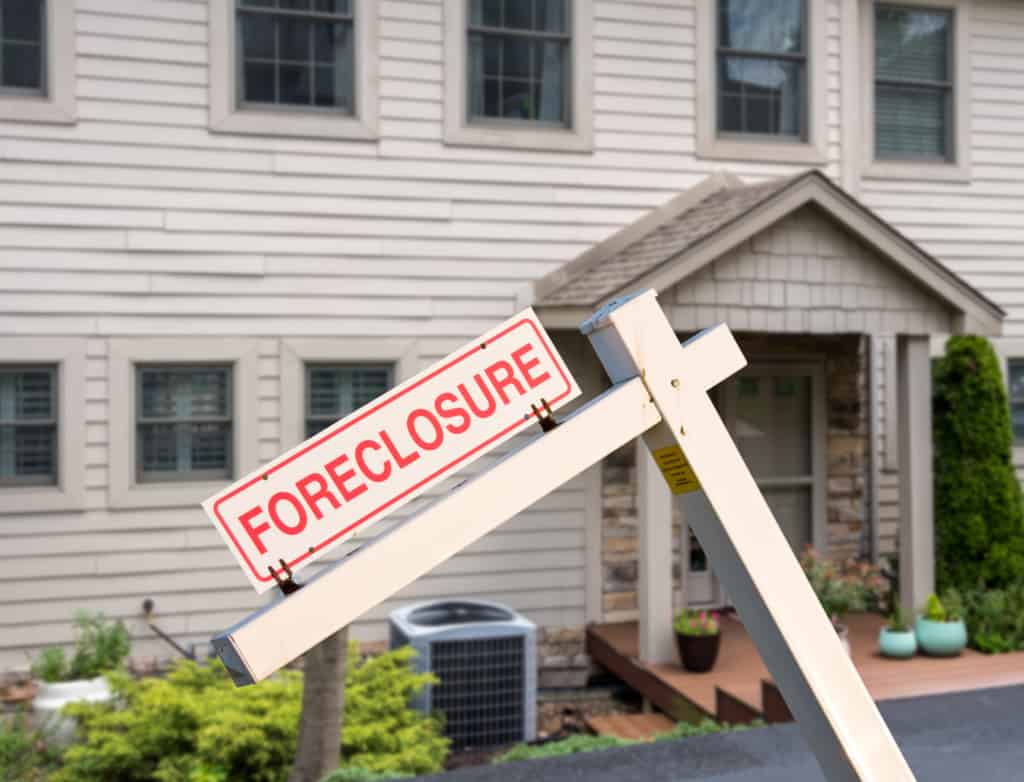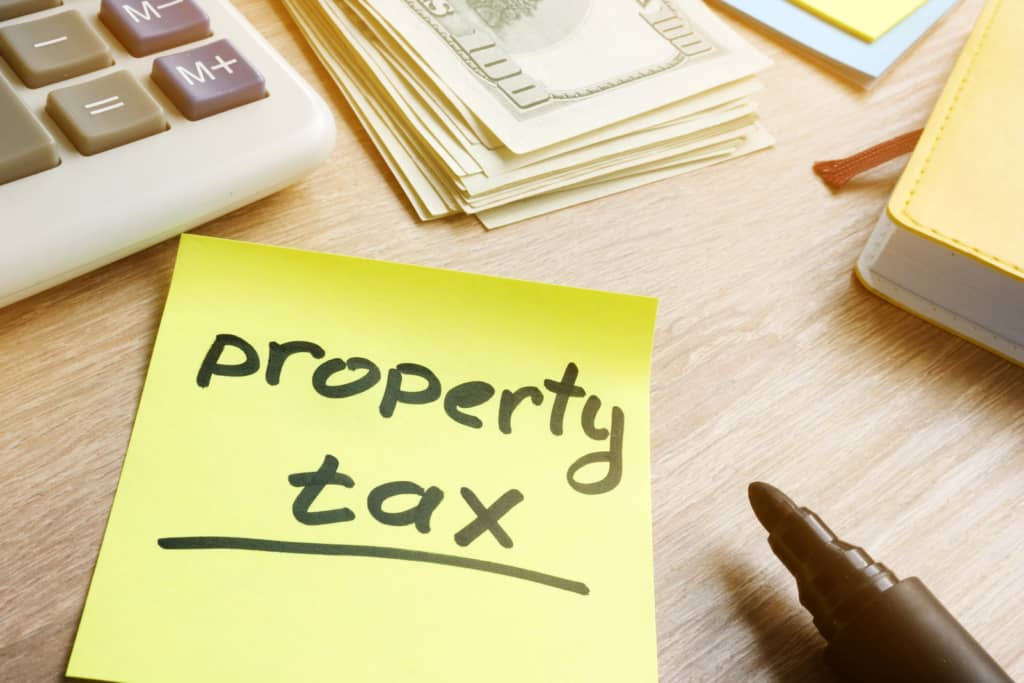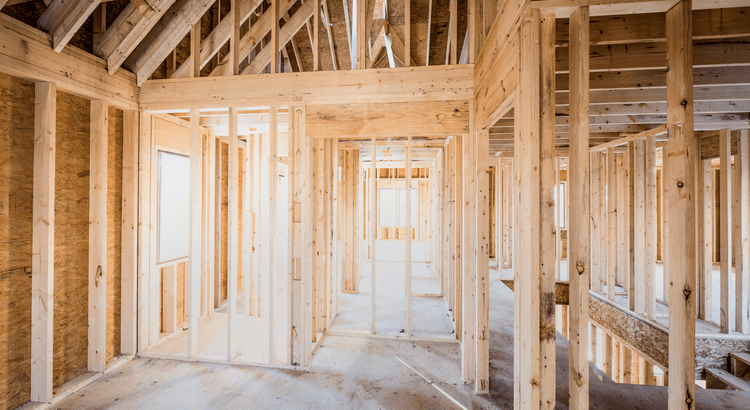Investing in real estate, whether it is single-family homes, multiplexes or apartments, can be frightening, especially for first-time or new investors. Here are common fears those investors express, and what they can do about them. Any of these sound familiar?
1. I’ve failed before. What if I fail at this too?
Everyone has failed at something. We start life by failing over and over again until we master incredibly complicated things like walking and talking.
Investing in real estate is no different. Yes, you’ll probably have some bumps in your investing, but there’s only one way to find out. You overcome failure by trying and failing, and trying again! But as long as you get back up, learn from those mistakes and keep moving forward, eventually you’ll succeed.
You can minimize failure by learning from experienced real estate professionals and investors. Lean on their expertise. Ask lots of questions, but don’t be afraid to try.
Be willing to make mistakes. Be willing to do uncomfortable things because that’s how you’ll grow into an investing expert.
The thing about success is that most of the time, success comes only after failing. So, can you really call it failing? If you make up your mind that you will keep working and trying until you succeed, you can never truly fail.
2. I’m new to real estate. I don’t really know what I’m doing. I might make mistakes and buy a bad property.
In every single endeavor, everyone is new to that endeavor at the beginning. Being new at something only means you need to spend time learning it, working it, learning from others and trying and trying until your succeed.
To overcome your newness, stand on the shoulders of pros who have come before you. Read books and articles written by experienced investors. Watch video. Take classes. Engage an investor-focused real estate agent like Kurzner Group. Network with other investors.
Real estate is a people business. Get to know people. Ask people to help you. If you ask nicely, you’ll find most people are glad to share their expertise.
3. I’ve heard people say real estate is risky. Maybe I should avoid it.
Life is risky. Getting out of bed is risky. You can choose to be petrified by risk or face it and overcome it.
The evidence is clear: real estate is everywhere! Literally. Everywhere you go on Earth, you’re on a piece of real estate. Someone owns it. Someone was willing to take the risk to buy that property. Why not you?
The great news is that you don’t have to invest in real estate all alone. There are numerous investor groups online where you can get advice from other investors. And we’re here to help, if you’re interested in buying property in Metro Atlanta.
4. I won’t be able to find a good investment property.
Finding a piece of real estate that is a good investment can be a challenge, especially when you are first learning the game. Is the price too high? Is the structure in good condition? Can I find good renters?
To get good at answering these questions, you need to look at numerous properties. This is a numbers game. The more properties you examine, the more likely you are to find one that is a good investment for you. Be willing to look at lots of property, both online and in person.
And be willing to make offers on those properties. You have to make offers to get an offer accepted. You could look at a thousands properties, but until you make the first offer, you are no closer to owning one than someone who has never looked at an investment property. Just be prepared to be persistent. You may have to make 20 or 30 offers before someone accepts your offer, especially when the supply of properties is low and competition is high.
Investment opportunities may appear scarce, but the more you look, the more offers you make, the more opportunities will open to you.
An investor-focused real estate agent can help you locate properties that are more likely to be good investments. Lean on them to reduce the time it takes to find one.
5. I’m afraid I won’t be able to come up with the down payment or get financing.

Buying real estate does require money. Fortunately, it doesn’t all have to be your money. Real estate can be highly leveraged, meaning that with a relatively small down payment, you can secure financing to buy property.
Getting creative with the down payment and the financing is how fortunes are made!
Obviously, if you have your own savings as a down payment, making your purchase will be easier. But there are other ways to get a down payment, including partnering with someone, borrowing the down payment, borrowing against some other asset, etc.
Financing may come from a traditional mortgage lender, the seller (owner financing), a partner, private money lenders, hard money lenders, and more.
Getting money to buy real estate is not impossible. You just have to start looking for sources. Get pre-approved by a lender so you know how much credit is available to you. Knowing this will help direct your search for real estate that is in a price range you can afford.
If your credit is not the best, you’ll need alternatives for financing. Start now working on evaluating your credit, improving it when possible, and securing lending sources.
6. I found several possible investment properties, but I can’t decide which one to buy. I’m afraid I’ll choose a bad property. How do I pick the perfect property?
Unlike the previous “scarcity fear,” some people find themselves overwhelmed by too many property options. If you are in this situation, be thankful that good quality properties are available.
When facing two or more options, just conduct a simple comparison based on easily measurable factors: property price, taxes and insurance, rent potential, expected maintenance cost, expected occupancy rate, condition of property, estimate repair cost, etc. Remove emotion from the decision as much as possible.
If you have an investor-focused real estate agent helping you, they can prepare a comparison like this, and help you evaluate the options objectively.
Oh, and just to be clear, there are no “perfect” properties. Some properties are better than others, but they all come with advantages and drawbacks. Your job is to find one that tips in your favor.
7. I’m afraid I won’t have enough cash flow and won’t be able to cover the mortgage. I could lose the house.

Life is full of unknowns. Real estate is no exception. Renters come and go. Weather can damage a house. Unexpected repairs cost money.
Here’s how you deal with it: Expect the unexpected.
When you build the financial profile for an investment property, build a reserve or cushion into the numbers so you can cover unexpected events, expenses or situations.
If you can’t add this cushion and come up with numbers that work, consider skipping that particular investment. Just remember that no investment is 100% guaranteed, except the money you bury in your backyard and never invest. With that, you are guaranteed zero return.
8. I’m afraid I won’t be able to find tenants and the house will sit vacant.
Risk mitigation is what real estate investors do to prevent and prepare for disaster or threats. You can mitigate the risk of not finding tenants in multiple ways.
Buy property that is in a high-demand area. Buy property near other successfully rented properties. Buy property near good schools, employers, public transportation, etc. Look for area amenities renters want such as recreational areas, parks, greenways, restaurants, shopping, entertainment, etc.
Then make sure you market your property until you find renters.
9. What if the tenants are a nightmare who don’t pay rent and/or call at 3 AM complaining about a leaky toilet?

This fear may be the most common simply because this is what people hear about when real estate horror stories get passed around.
Yes, nightmare tenants exist. But you don’t have to be one of their victims. As mentioned previously when talking about mitigating the risk of not finding renters, you can also mitigate the risk of the renters themselves. Conducting background and credit checks of renters can prevent most problematic renters.
Clear and thorough rental contracts will also help prevent problems. A good contract will very clearly spell out when rent is due and how maintenance issues are handled, among other things.
A property management company that handles much of the tenant interaction and maintenance issues can virtually eliminate your need, as the landlord, to be involved. Some property management companies even offer rent guarantee programs, for even more peace of mind.
10. I’m scared that the house will have constant maintenance issues. I’m not a handyman.

Maintenance and repairs are a part of any rental property. How you handle it is important.
If you are handy, and enjoy getting hands-on, by all means, do that yourself. But as you grow and scale your real estate empire, you will probably want to outsource this aspect of the business.
If you know you are not good at maintenance, plan now how you will cover it. As mentioned above, if you have a property management company dealing with your rental units, they will handle maintenance and repairs.
If you are managing your property yourself, but don’t want to do maintenance, find a trustworthy handyman who can deal with typical issues.
11. What if I can’t afford to maintain the property?
Rental houses and apartments do wear out over time.
When considering the purchase of a property, be sure to conduct thorough inspections to understand what repairs and upgrades may be needed. This will help you plan and budget accordingly. Knowing what you are buying can assure that you don’t have unaffordable maintenance costs down the road.
When you “run the numbers” to determine if a property is a good investment, be sure to allocate money for regular maintenance and repairs. This is not optional if you want to protect your investment.
Once you purchase a property, conduct proactive maintenance, before problems develop. Stay on top of problems as they occur to prevent larger or catastrophic repairs. Regular care will help to keep your costs under control and prevent big “gotcha” expenses. Plus, tenants will be happier when you take care of problems, or proactively maintain the property before an issue develops.
12. I won’t be able to find a trustworthy remodeler and/or maintenance company.
Few industries have lower public trust than does the remodeling/repair industry. Remodelers are often mistrusted due to dishonest individuals who either take payment without finishing their work or produce low-quality results.
Finding trustworthy repair companies takes due diligence. Ask around. Ask your neighbors and other rental owners for recommendations. Check reviews online. Make sure you are dealing with licensed contractors. Ask for proof of their insurance.
If possible, try out a company on a small job before giving them a big job. But once you find good quality help, hold on to those companies, and consider them a part of your success formula.
13. What if the property loses value?
When was the last time you heard about real estate losing value? Yes, it does happen, but it is rare, and typically short-lived. Prices dropped during the housing crisis of 2008, and more recently home prices dropped slightly in 2022 and early 2023. The recent drop was only after a heated market drove property prices up, and heavily inflated rental rates.
Even with a small pullback, prices appear to be increasing once again, due to a general shortage of homes. For the foreseeable future, property prices and rental rates are expected to increase.
The long term history and forecast for real estate shows steady increases.
There are small pockets of the country where populations are dropping, and real estate values are dropping, but these are rare.
14. What if I could make more money investing in something like crypto or stocks?

Investment opportunities abound, from stocks, bonds, precious metals, cryptocurrency, fine art, beanie babies, tulip bulbs and much more.
All of these have had their ups and downs (some more down than up).
Real estate is another investment that has had its ups and down, but as previously mentioned, the long term look at real estate shows a steady upward climb in value. Real estate offers advantages over other investments, including its ability to throw off regular cash flow through rent, finite supply (Mark Twain famously said “Buy land, they’re not making it any more.”), tax breaks and incentives, leverage-ability, and it is something absolutely everyone needs.
Most investment gurus will tell you to not put all your investment eggs in one basket. Real estate fits nicely alongside other investments to diversify your portfolio. Because, what today may look like the smartest, most lucrative investment ever, may tomorrow be the laughingstock.
Consider putting some of your investment eggs in the real estate basket.
15. I have lost money in other investments. What if the same thing happens to this property?
Being “gun shy” after losing money in investments is understandable. No one likes to lose hard-earned cash.
The key thing to remember after losing money in an investment is that there will always be investments that go up and investments that go down. You just have to do your best due diligence to try to find a good investment that won’t lose value. Learn from past losses or mistakes, and adjust what you invest in going forward. But don’t let a previous loss deter you from making smart investments in the future.
Real estate is a time-proven form of investment, creating many millionaires. Even casual investors and homeowners (who own just a single piece of real estate) are able to increase their personal net worth substantially over individuals who do not own real estate.
16. If this is such a good investment, why hasn’t a more experienced real estate investor already bought it? Something must be wrong with it.
While the internet has made information sharing much more efficient and created a more level playing field, as long as humans are involved there will always be what are called “market inefficiencies.” These gaps in information create opportunities for investors to find investments with sufficient returns.
Information related to exchange-traded securities (stocks, bonds, etc.) is easily shared and transmitted, creating stock markets that are rapidly traded by computer algorithms. Conversely, there are still too many inefficiencies in real estate to make trading it routinely possible without human intervention.
As an example of this, Zillow, known for their web site offering a vast amount of real estate data, got into the house flipping business. Their attempt at applying algorithms to flip properties failed, and they shuttered that portion of the business, losing approximately $880 million in the process.
The point is that you have opportunity because of information gaps. Not all investors will have access to all the details about a property. And because real estate is physically tied to a location, only certain buyers will be interested.
Every investor has a different set of investment criteria they are seeking. The rate of return (cap rate) an investor is seeking will define investment properties they will consider or reject.
Different factors influence how a property attracts investors. What appeals to you may not appeal to another investor nearby, and vice versa.
So, just know that there are plenty of reasons why a property is still on the market, and why it may be the perfect investment for you.
17. I’m afraid of being scammed.
Scams do happen, but it’s not likely when dealing with physical real estate.
First, you’ll be able to view the property in person. If this option isn’t available to you, that should be a red flag. Second, you should hire a professional property inspector to assess the property. Third, you should always purchase title insurance when buying a property. This involves a professional title company making sure the title is clear of any issues like liens, claims, or judgments. Fourth, if you hire a real estate agent, they will assist you with details that can help prevent scams or legal difficulties.
18. Real estate isn’t liquid like stocks. I’m afraid I’ll get stuck with an investment I can’t easily sell.

When you buy an asset you plan to sell or may need to sell in the future, it is helpful to know the liquidity of that asset. In other words, how easily can the asset be converted to cash?
Assets like publicly traded stocks are highly liquid. They can be sold with a tap on your phone or a click of a mouse. The cash, in most cases, is immediately available to you.
Real estate, on the other hand, is not nearly as liquid. Selling a property can take days, weeks, months or even years. Once a buyer is found, additional weeks or months may pass before a closing takes place.
This lack of liquidity can create problems for property owners if they need cash immediately.
If you are concerned about the liquidity of a real estate investment you are considering, check the sales velocity of properties in the area. Ask your investor-focused real estate agent about the number of properties being sold and the average time it takes for them to sell in the area where you want to buy.
19. Real estate people are not trustworthy.
If you’ve had a bad experience at a restaurant, do you automatically assume all restaurants are bad? Probably not.
Don’t make the same assumption regarding real estate professionals if you had a bad experience in the past. The majority of agents and other real estate professionals are extremely competent and honest. Agents must take mandatory instruction, including continuing education. They must also pass a state-administered test to become licensed to sell real estate.
Complaints of ethical or other violations are investigated and penalties are given when any violations are confirmed.
Untrustworthy individuals don’t tend to last long in the real estate business, especially with so many publicly available forums for review such as on Google or Facebook.
20. Property taxes and insurance will go up.

When you buy a property and get a fixed-rate mortgage, you lock in your payment amount for the term of the loan. However, some costs for the property will rise. Property taxes and insurance will likely rise in the future.
This is normal and expected. Budget for it. Don’t forget that you’ll also be able to raise your rent in the future. Inflation is a natural, fairly predictable influence, and should not come as a surprise.
21. What if I buy the property, then later find all kinds of problems, and it becomes a money pit, costing a ton of money to fix?
Ah yes, the proverbial “money pit” argument against investing in real estate.
Can this happen? Yes. Can you prevent it from happening to you? Yes.
The simplest method to prevent buying a money pit is to get a professional property inspection BEFORE buying the house. A property inspection will only cost a few hundred dollars, and you’ll have peace of mind knowing what problems the house may be hiding. You can ask the seller to correct them, or you can walk away if the “pit” is too deep.
Most properties have some issues, but few are hiding drastic, money-sucking defects. So, go forth and find your next investment!
Conclusion
Did you find one or more of your own fears in the list above? Fear is natural when going into something new and unknown. A healthy skepticism will help prevent mistakes and big losses. But the evidence is clear: real estate can be a fantastic investment vehicle if you follow proven principles of research and due diligence, risk mitigation, and proper upkeep and maintenance of your property.
Kurzner Group specializes in helping real estate investors to acquire properties in Metro Atlanta and surrounding areas. We provide extraordinary service to help investors understand real estate investing in general, then guide them through finding property, viewing and evaluating them, making offers and finalizing purchase. Our clients include first-time buyers all the way to large corporate investors.
We can help you too. Just contact us today and let’s get started finding your next investment property. Complete the form below and we’ll be in touch right away.





